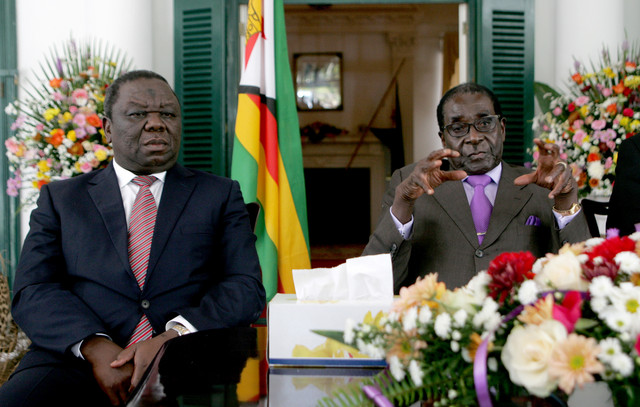Patriotism must remain above partisan politics
By Don-Martin Whande
Whenever we engage ourselves in everyday life, we find ourselves defined in national and patriotic terms. We as a people share a culture, a history, values, and, above all, a language which makes us unique as Zimbabweans.

People within a nation share a commonality with one another which makes them unique from other nations and countries.
Patriotism is an ideology. This implies that patriotism, like morality, must not be legislated since it is a matter of the heart. The Americans have made a critical mistake of legislating patriotism by enacting the Patriot Act. Legislating patriotism shows unawareness of ideals.
A patriotic person is bound by duty to support his or her country. The problem we are having in Zimbabwe is that patriotism is now defined by the political party you support instead of loyalty to pristine ethics. Moreover, if your beliefs run counter to a political party, you are regarded as anti-patriot.
The truth is any person can be a patriot despite them disagreeing with a political policy. I believe this is where we have taken a wrong turn as Zimbabweans. This philosophy of “don’t criticise, don’t cause offense” has got us going crazy because not only has it suppressed ideas, but also public opinion and political participation. It is okay for us to disagree on matters and still respect each other as a people who in our own peculiar ways want what we think is best for our country.
Patriotism can and should, at times, include disagreeing with government policies. Citizens of Zimbabwe must be able to do so without being identified as unsupportive and an obstruction to the common good.
It is the duty of “patriots” to inquire and investigate issues that affect them and question everything that must be questioned without fear of harassment. However, it would be naïve blaming politicians for lack of patriotism because patriotism is about the citizen and not the leaders.
It is easy, from time to time, to lose sight of the fact that that person with the complete opposite point of view most likely loves their country every bit as much as the one who doesn’t. Criticism should be accepted as an evaluation system and a demonstration of active interest in the internal life of our country. I encourage political parties to deconstruct the superiority mindset and understand that their ideas for government are not the only way that a country could be run competently.
Patriotism is above politics, but true patriotism is very important to politics. It is not patriotism that disfigures politics; rather, what disfigures politics is the intentional effort by some politicians who don’t understand what patriotism really means, to exploit the ignorance of voters for their selfish ambitions. I believe patriotism is the devotion for one’s country – and by country, I mean the citizens of that nationality. I plead with all political parties to start being concerned with the people, rather than what they might lose than get.
Mr Christopher Gwatidzo taught me at Midlands State University that I should always avoid using emotions when I argue. When I analyse the political platform in Zimbabwe, I finally understand what he meant because the intense emotions of identity politics, in Zimbabwe, has stifled progressiveness and leniency.
If a person believes in patriotism, they should be conscious that the expression of it may have to go against the government of the country you feel patriotic about. Patriotism is an ideology and when used in moderation is healthy but, taken to extremes, it can be harmful.
Criticism is not unconstructiveness, but a way of appreciating our diverse differences. These differences are meant to be integrated and bring us to a place of commonality. Politics of emotion must be taken out of patriotism because patriotism gives us a sense of identity and must not be used to make a political point. Patriotism is above politics which is why it is a prerequisite for being elected to office.
In conclusion, whether one party believes that the status quo of Zimbabwe politics is the best way to govern, or the other believes fundamental changes are needed, both must be appreciated. Both are aiming to provide the best for the citizens and the electorate. True intentional patriotism must reflect the love, differences and commonality that bring us together rather than the misguided love for a political party.






